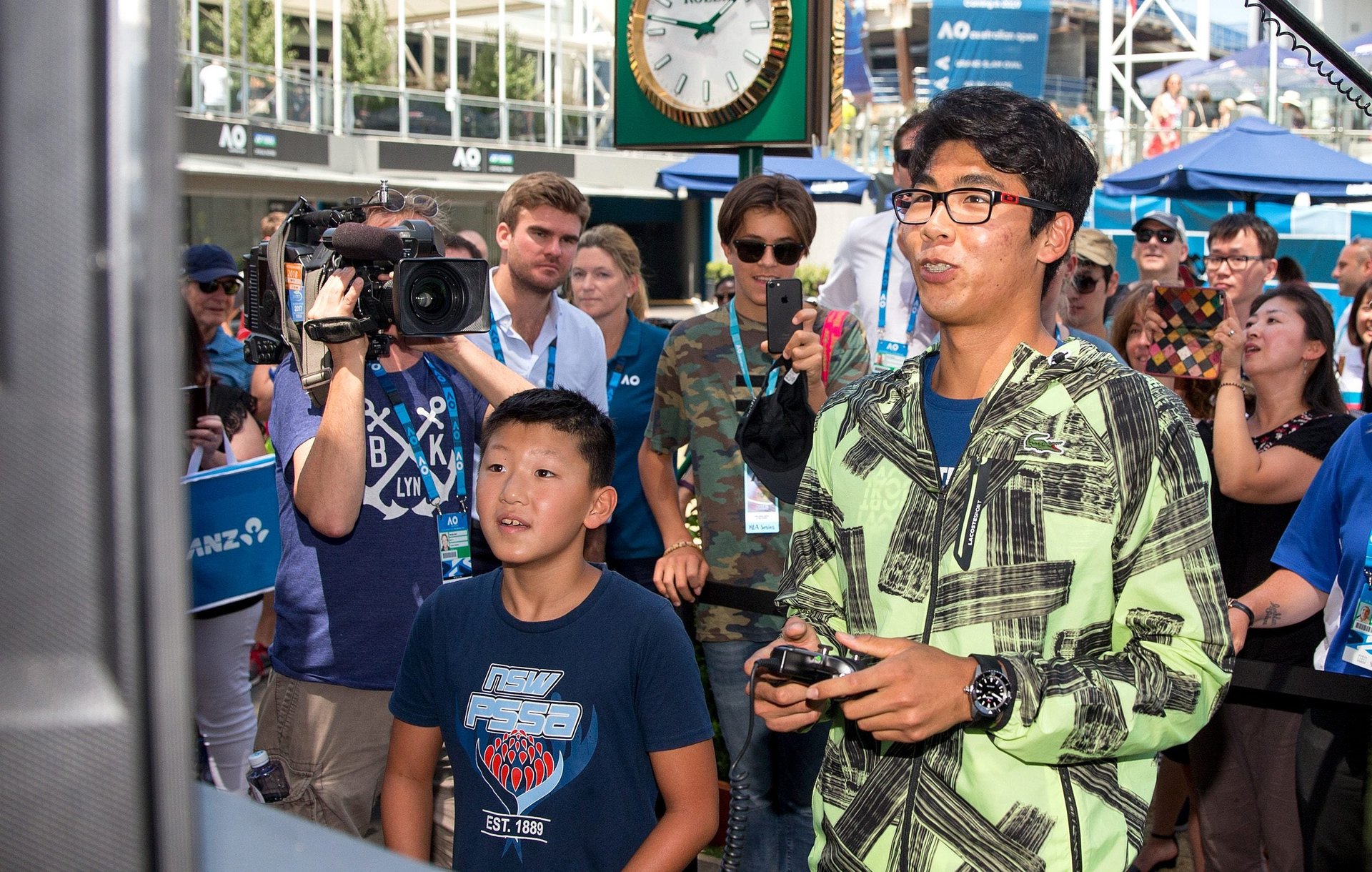Korea’s new hero is a bespectacled 21-year-old taking on Roger Federer
South Korea has a new hero.


South Korea has a new hero.
Amid the hubbub surrounding the upcoming Winter Olympics in Pyeongchang, it’s tennis that the country is fixated on, after 21-year-old unseeded Chung Hyeon reached the semifinals of the Australian Open. Having knocked out Novak Djokovic in the fourth round and Tennys Sandgren in the quarterfinals, he is play Roger Federer Friday ( Jan. 26).
It’s the furthest that any Korean tennis player has reached in a Grand Slam, and Chung is arguably the most popular athlete at home since figure skater Yuna Kim, who retired from the sport in 2014. Former president Lee Myung-bak, a tennis lover, posted on Facebook (link in Korean) after Chung defeated Djokovic: “A beautiful young man’s journey is still in progress. I’m impressed by his ability to overcome world-class players, mentally and technically. I hope Chung Hyeon’s victory gives courage and energy to our athletes who will compete at the Pyeongchang Olympics.”
South Korea’s foreign ministry also chimed in (link in Korean) with a message of support for Chung, while congratulating Djokovic as well.
Chung’s distinctive glasses have earned him the nickname “the Professor” among Koreans, but they’re no fashion item—Chung suffers from serious astigmatism. A doctor suggested he play tennis when he was seven, as looking at something green could help with his eyesight. His brother and father also played tennis. The two brothers used to play in a parking lot (paywall), where Chung aspired to be like his idol Djokovic.
Already, what’s being called the “Chung Hyeon effect” is in full force in Korea. E-commerce platform 11st said that (link in Korean) in the past week, sales of tennis shoes and gloves rose 85% compared to the same week last year, while sales of tennis bags and rackets also increased. And Koreans even want to look like Chung—local media reports said that stores have seen an increase in interest for Chung’s Lacoste tennis outfit and Oakley glasses.
But Chung’s success is more than just a matter of national pride. To some, he’s a much-needed source of inspiration for South Koreans, especially the younger generation, many of whom are unhappy and battling unemployment, low pay, and high stress.
Ku Jeong-woo, a sociology professor at Sungkyunkwan University in Seoul, told newspaper Chosun Ilbo that Chung is an inspiration to young Koreans because he “overcame obstacles like his bad eyesight, and he earned his victory fairly and with confidence.” Ku added that all this comes amid a backdrop of growing disappointment in the government over its handling of relations with North Korea and its ongoing crackdown on bitcoin—which many young Koreans have invested in as a way to escape their misery.
In a similar vein, former Los Angeles Dodgers pitcher Park Chan-ho and golfer Pak Se-ri were also feted as heroes (link in Korean) during the Asian financial crisis of 1998, which ravaged the South Korean economy. Kim Sae-hoon, a 23-year-old university student, told the Chosun Ilbo, “now I understand why they were called ‘people’s heroes’ during the financial crisis… I’ve gained confidence by watching [Chung Hyeon] play against foreign athletes, who are born with better physical conditions for tennis.”
Beyond his tennis prowess, there’s a simpler reason Koreans are crazy about Chung. Many say that (link in Korean) they are drawn to his fluent English and carefree attitude and humor. In an interview (link in Korean) with Korean media last year, Chung said that apart from tennis, his favorite activity was a much more achievable “rolling around in bed.”
Chung will play Federer on Jan. 26 at 7:30pm Melbourne time.